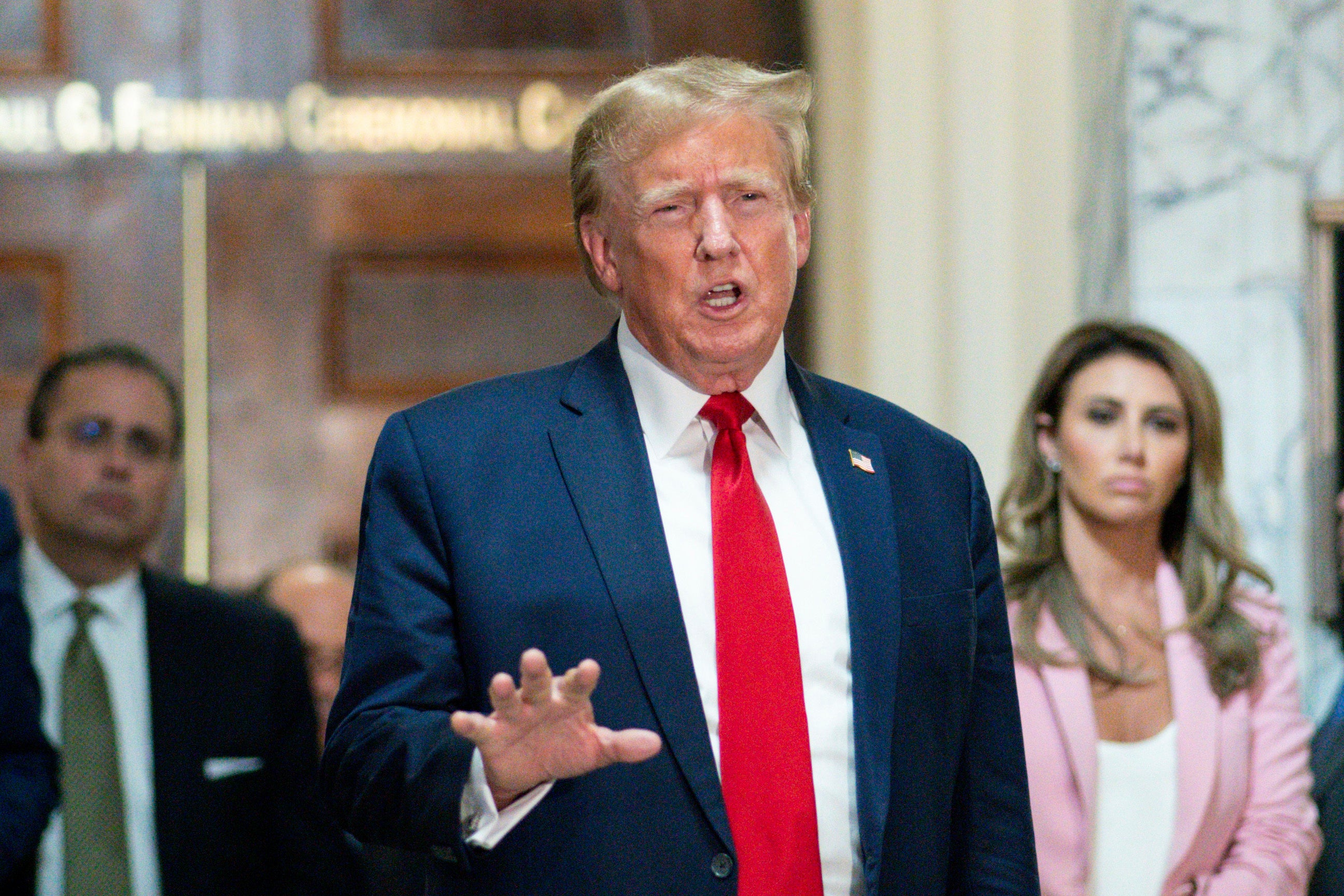Letitia James takes first steps to seize Donald Trump’s New York assets
The attorney general files notice of the ex-president’s fraud judgment in Westchester County, home of his golf club and Seven Springs estate
Days after Donald Trump lost a months-long civil trial on allegations that he defrauded investors, New York Attorney General Letitia James said she was prepared to begin seizing his assets if the former president couldn’t find the cash to pay the $464m judgment against him.
Earlier this month, her office took the first step in doing just that.
State attorneys have registered the judgment from the civil fraud trial in Manhattan with the county clerk’s office in New York’s Westchester County, home to the former president’s Seven Springs estate and his Trump National Golf Club Westchester.
The filings, dated 7 March, signal that Ms James could soon begin the process of taking possession of Mr Trump’s assets in the county if he fails to secure a bond that would block enforcement of the ruling against him.
She gave notice to the Westchester County clerk nearly two weeks before Mr Trump’s attorneys pleaded with a state appeals court to block enforcement of the half-a-billion dollar judgment against him, which is set to take effect on Monday.
This week, Mr Trump’s lawyers told a state appeals court that the Republican Party’s likely presidential nominee faces “insurmountable difficulties” securing a bond, which could require collateral totalling 120 per cent of the amount of the judgment – which in this case comes to nearly $560m. They called it a “practical impossibility”.
They have asked the court to accept a smaller bond, or none at all, to block enforcement of the judgment against Mr Trump and his co-defendants while they appeal the full ruling.
Ms James’s office has suggested that Mr Trump and his co-defendants instead seek multiple smaller bonds or hand over the property to the court, which Trump family attorney Clifford Robert called “unjust, “impractical” and “unconstitutional.”
“Perhaps worst of all, the Attorney General argues that Defendants should be forced to dispose of iconic, multi-billion-dollar real-estate holdings in a ‘fire sale,’” Mr Robert wrote in a letter to a state appeals court on Thursday.
“It would be completely illogical … to require Defendants to sell properties at all, and especially in a ‘fire sale,’ in order to be able to appeal the lawless Supreme Court judgment, as that would cause harm that cannot be repaired once the Defendants do win, as is overwhelmingly likely, on appeal,” he wrote.
Mr Trump, his adult sons, two former Trump Organization executives and the entities associated with the brand-building properties in the Trump real estate empire were ordered to pay more than $464m at the conclusion of a three-year investigation and trial targeting fraud in the family’s business.

Defendants were found to have engaged in a decade-long scheme to fraudulently inflate the value of his net worth and assets in annual statements of financial condition that were given to banks and insurers to secure more favourable financing terms for some of his star properties.
The total “disgorgement” owed that is now owed back to the state – money that is effectively forfeited as “ill-gotten gains” – amounts to roughly $364m, with an additional $100m in interest.
Post-judgment interest is accruing daily at the rate of 9 per cent per annum, or more than $114,000 for all defendants, including nearly $112,000 for Mr Trump alone.
Mr Trump approached 30 companies that could help him with a surety bond to no avail, according to his attorneys. And selling off his properties to finance an appeal would “inevitably result in massive, irrecoverable losses – textbook irreparable injury,” they added.
The deadline for Mr Trump to post an appeals bond is 25 March.
Join our commenting forum
Join thought-provoking conversations, follow other Independent readers and see their replies
Comments
Bookmark popover
Removed from bookmarks